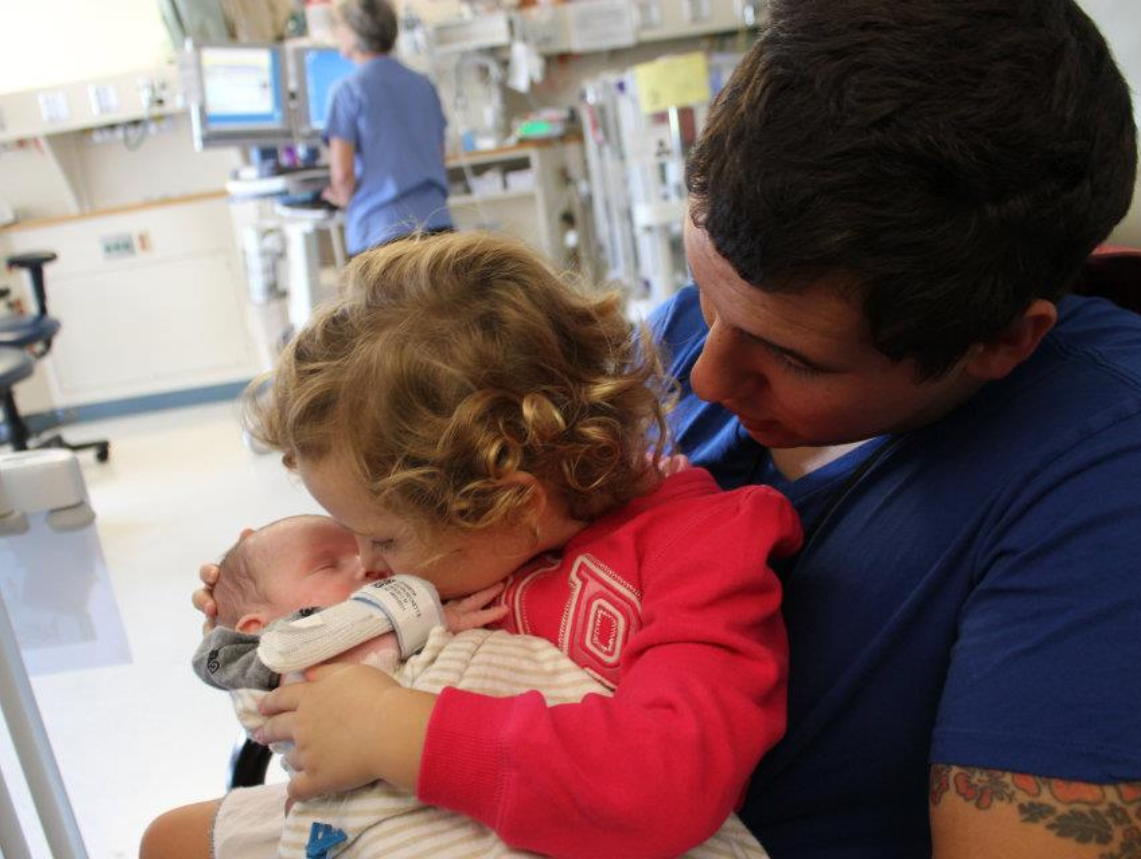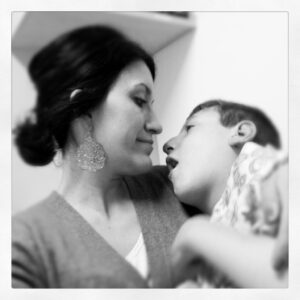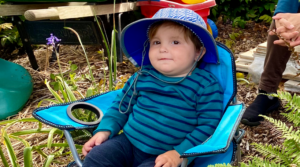Goals of Care
Everyone has goals: for themself, for family and friends, for what they want to see in the world. You may not always think about your goals, but they guide how you are in the world and how you think about what you want and expect to do.
When your child has a serious medical condition, the medical team will ask about your goals of care. You, the parent, have the wisdom of knowing your child best. Your goals of care are the values and hopes that reflect that knowledge and will guide how you make decisions for your child. They may include seeking a cure or life-prolonging treatment, ensuring your child’s comfort, supporting their ability to enjoy life, spending as much time as possible at home. Having clear goals of care, even if they evolve over time, gives you a sense of control and confidence and helps ensure your child’s care matches what you believe is best for them and your family.

ON THIS PAGE:
Your Team:
A medical professional who practices general medicine.
An interdisciplinary specialist who helps manage the medical, social and emotional challenges of complex and/or long-term care.
A specialist whose aim is to improve the quality of life of their patients over the course of their illness regardless of stage, by relieving pain and other symptoms of that illness.
A mental health professional who uses therapy and other strategies to support coping and adjustment and treat concerns regarding social, emotional, or behavioral functioning.
A trained professional who works with people, groups and communities to help them better their lives.
A member of the clergy who is responsible for the religious needs of an organization and/or its constituents.
Specialized care for people whose prognosis is measured in months instead of years, and the desire is to focus on comfort.
Your child’s primary physician, who knows your family well, can be helpful in considering your values. Complex care and palliative care clinicians can also support you in this, and in identifying the decisions you may need to make. A psychologist, social worker or chaplain can provide a neutral space for talking through any concerns. Hospice care can help you revisit your goals as your child declines. These clinicians can also support you in completing any documents needed to express and convey your choices.
Orienting
As a parent, you have hopes for your child (or children) and a vision for the life you hope they will have and that you hope to provide for them. Now what you find yourself hoping for will likely shift. Certain things will matter less, and other things will matter more.
At diagnosis, especially, there is so much to learn and absorb. It is natural to focus on finding a treatment or cure for your child’s condition, and you will want to find the specialists who will help you with this. You also will want to consider what is immediately happening, including addressing any pain or other suffering that your child may be experiencing. Learning the hospital “system” is also a priority, as is familiarizing yourself with social service systems of care.
At the same time, there is a practical need to establish goals and direction for your child’s care.
Articulating your goals of care for your child can feel impossible at the beginning as you absorb the diagnosis and search for therapies to treat it. It can feel scary to anticipate what lies ahead. But you need not be alone in establishing your goals or revisiting them as you feel you need to. You can involve the medical team, members of your family, spiritual leaders, school team or other trusted advisors in goals of care conversations.
The following section, Navigating, offers helpful ways to do this courageous work.
– Nancy F., clinician
Related Resources
-
 A couple’s advice to fellow parents: “Don’t do anything you’re not comfortable with; It’s OK to say to the doctor, ‘I don’t know, can you please give me a list of things to consider.’"video
A couple’s advice to fellow parents: “Don’t do anything you’re not comfortable with; It’s OK to say to the doctor, ‘I don’t know, can you please give me a list of things to consider.’"video -
 A cardiac heart failure MD: Having goals of care talks at non-crisis timesvideo
A cardiac heart failure MD: Having goals of care talks at non-crisis timesvideo -
 A Parent's Narrative of Their Child is the BaselineBLOG
A Parent's Narrative of Their Child is the BaselineBLOG -
 Learning to let go of the therapies that weren’t serving him.video
Learning to let go of the therapies that weren’t serving him.video -
 Baby Steps and Never Judged DecisionsBLOG
Baby Steps and Never Judged DecisionsBLOG -
 A mother’s need to get as much information as possible; while the pediatrician may be protecting against too much.video
A mother’s need to get as much information as possible; while the pediatrician may be protecting against too much.video
PROCEED TO NAVIGATING
Moving Forward
Goals of care conversations are usually revisited over time as you adapt and become more knowledgeable about your child’s condition and illness progression. You may find that your goals are changing as you gain confidence as a caregiver. You have learned a lot as the journey has almost certainly involved new symptoms and interventions to consider.
Over time your priorities may be shifting. Perhaps some things matter less, and others matter more. This does not mean that your prior ideas were wrong, only that you have more information now on which to base your decisions. While it may be difficult and scary to acknowledge what is occurring, consider how your ability to reflect, change and be the parent you want to be has grown through the journey.
Certain types of decisions should be documented to protect your child and family. A palliative care professional or social worker can guide you in thinking about this. Finding support from trusted advisors on the medical team, therapists or spiritual leaders can be very helpful. The section on Advance Care Planning presents detailed information for your consideration.
– Lauren T., clinician
Related Resources
-
 A Mom reflects on when quality of life bumped into quantity: We asked, “What are we doing?”video
A Mom reflects on when quality of life bumped into quantity: We asked, “What are we doing?”video -
 The Conversation and Advance Care Planning: “As Baseline moved, we’d make a new plan”video
The Conversation and Advance Care Planning: “As Baseline moved, we’d make a new plan”video -
 Listening to NoraBLOG
Listening to NoraBLOG -
 A Parent's Narrative of Their Child is the BaselineBLOG
A Parent's Narrative of Their Child is the BaselineBLOG -
 BreathBLOG
BreathBLOG -
 Your Child’s Baseline and Time Under TensionBLOG
Your Child’s Baseline and Time Under TensionBLOG





